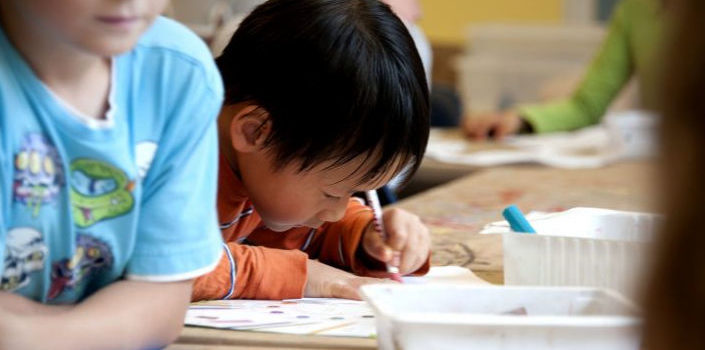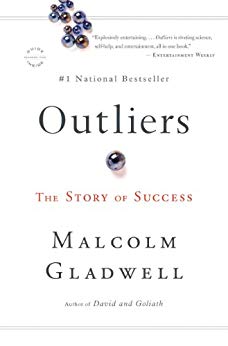

This article is an excerpt from the Shortform summary of "Outliers" by Malcolm Gladwell. Shortform has the world's best summaries of books you should be reading.
Like this article? Sign up for a free trial here .
Why are Asians so good at math? While it seems like a stereotype, the results are true – Asian countries consistently place high in academic math tests. The answer to why is surprising, stemming from practices centuries ago.
Learn more about why Asians are good at math here.
It all starts with culture. Our inherited culture shapes our success by informing our attitudes toward work. These attitudes might be passed down directly through legends or proverbs, but they also get passed down indirectly through surprising channels.
Why Asians Are Good at Math
The idea that Asians are good at math is a stereotype. It’s also true – on international comparison tests, students from Asian countries score in the 98th percentile.
But Gladwell argues it’s not true for the reasons you might think, like genetic predisposition to math. Instead, Gladwell argues why Asians are good at math comes from a cultural heritage of rice farming, which created a culture of diligence.
We’ll discuss why diligence, rather than innate ability, may create excellent mathematicians, and why Asians developed a culture of diligence.
The Importance of Diligence in Math
When it comes to math, the best students are the ones willing to spend a lot of time figuring out how to solve a problem. If Asians are more willing to work hard, then it can explain part of why Asians are good at math.
When kids take the TIMSS, an international math and science test, they also have to fill out a 120-question questionnaire about topics such as their parents’ level of education and their opinions about math.
Completing a 120-question questionnaire takes diligence. It’s grueling, and many kids leave questions blank. If you average the number of questions completed by kids in each country, places like South Korea, China, and Hong Kong come out on top. Asian kids demonstrate the most diligence.
Interestingly, you can predict which countries will score highest on the math portion of the test by looking at their average completion of the questionnaire. The kids who demonstrate the most diligence are the same kids who are the best at math.
Is this a mere correlation, or is it a causal relationship? It seems that Asian kids are good at math because of their diligence. Where does this diligence come from?
The Cultural Legacy of Diligence
So why are Asians so good at math? It starts with diligence. And Diligence may stem from a legacy of rice farming. Rice farming requires extraordinary precision and skill.
- Western farming is “mechanically oriented,” meaning that expansion requires larger plots of land and bigger and better equipment.
- Eastern farming, on the other hand, is “skill oriented.” Historically, rice farmers possessed neither the money for big plots and fancy equipment nor the space. They depended on their skills and long, hard hours.
Rice farming is difficult work. The annual workload for a rice farmer consumes about three thousand hours per year (that’s more than eight hours of work per day, every single day, all year). Rice farming requires extreme diligence.
Western farming, on the other hand, requires little to no work during the winter. Fields need to be left fallow for periods to prevent exhausting the soil. In 18th-century Europe, farmers worked from spring through autumn, followed by long stretches of idleness. They worked about twelve hundred hours annually. Traditional western farming does not require as much diligence as rice farming.
For hundreds of years, rice farmers produced the foundational crop of most Asian meals, and landlords incentivized farmers by allowing them to keep or sell whatever they produced above what was required as rent. Like the garment workers in Europe and New York in the late 19th and early 20th centuries, rice farmers saw the clear relationship between increased effort and increased wealth. As a Chinese proverb says, “No one who can rise before dawn three hundred sixty days a year fails to make his family rich.” Their occupation cultivated their diligence.
Even if their families no longer work in the rice paddies, Asian kids inherit the cultural legacy of diligence, and this shows up most prominently in their math abilities. This is a big part of why Asians are good at math.
The Importance of Language in Math Learning
Gladwell gives another, tangential reason that Asians are good at math, and it’s also the result of a cultural legacy, although it’s unrelated to work ethic.
The cultural legacy of language can make learning math easier or harder.
For instance, Chinese is more efficient than English for learning math. This is primarily due to two factors:
1. Chinese numbers take less time to pronounce. The human brain stores digits in two-second loops. Because English numbers take longer to pronounce than Chinese numbers, you can hold more Chinese numbers in your mind at one time. The Cantonese dialect, in particular, allows for storing up to ten digits in a loop. This makes mental math much easier for Chinese speakers than English speakers. Therefore, this has a chance of making Asians better at math.
2. Chinese number systems are more regular. Another math advantage of speakers of Asian languages is the way these languages organize number systems. Asian language number systems are often more intuitive than the English system. Chinese numbers follow a consistent pattern, whereas in English, number patterns are irregular.
- For example, English speakers say “eleven” instead of “one-teen,” which would be in keeping with the pattern of other “teen” numbers (fourteen, fifteen, sixteen, etc…). In contrast, the Chinese “eleven” is said literally as “ten one,” and twelve is said as “ten two.”
- Or, consider how “sixty” and “seventy” sound very much like the “six” and “seven” marking the 10’s place, whereas “twenty” and “thirty” don’t sound very much like “two” or “three.” In contrast, the Chinese “sixty” is said as “six ten,” and “twenty” is said as “two ten.”
Because of these differences, Asian number systems are easier to learn and understand. Therefore, Asian children learn to count much faster than English-speaking children. A four-year-old Chinese child, for example, can usually count to forty, whereas a four-year-old American child can typically only count to fifteen.
The regularity of the number system also means Asian children learn to perform addition and subtraction more easily. Instead of memorizing seemingly arbitrary bits of information, the functions operate as part of a logical system.
———End of Preview———

Like what you just read? Read the rest of the world's best summary of "Outliers" at Shortform . Learn the book's critical concepts in 20 minutes or less .
Here's what you'll find in our full Outliers summary :
- What makes some people outliers, and most others not
- Why some genius outliers end up failing in life
- Why Asians are good at math, and other curiosities of culture







This is a great summary Allen, thanks. I had forgotten this part of the book and just re-read that chapter.
1) The language theory makes me wonder if an English speaker could have their own language of quick sounds for the digits, and have a measurable performance increase.
2) A lot of people annoyingly reject information like this as “racist” and “unfair” and instead focus on how, for example, it would make Asians who *aren’t* good at math feel.
This is unfortunate, because perhaps they, and others, could copy the characteristics that Asians use to excel at math and we could all move up.
Positive (true) stereotypes are, well, positive, and serve as helpful models.
All this to say that this info is a good reminder to get up early, work hard, be diligent and succeed!
Thanks again for the article.